When a major event occurs after the market closes, traders need to act fast to secure their positions.
But while it is possible to do this with stocks, can ETFs be traded after hours session?
We answer the question and discuss some potential risks & advantages below.
What Is After Hours Trading?
After-hours trading (or extended-hours trading) is any market transaction that occurs outside the regular stock exchange timings.
For example, in the US, markets are usually open from 9:30 am to 4 pm EST.
Most after-hours action happens between 4 and 8 pm EST, once they close for the day.
In the morning, pre-market trading happens. This includes orders placed from 4 am to 9:30 am EST.
However, most of the volume for the session usually comes between 8:30 and 9:30 am EST.
Both pre-market and after-hours trading occurs through electronic communication networks (ECNs) rather than the exchanges directly.
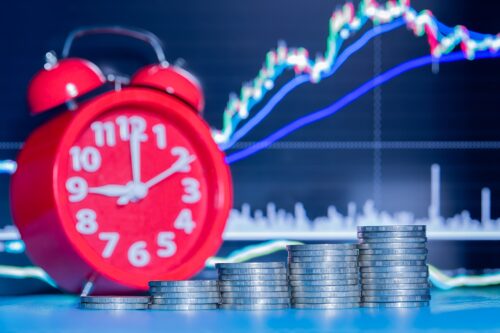
These computer-based systems pair buyers with sellers, letting them interact and trade directly.
For example, let us say a trader wants to buy the security XYZ at $45.
The system will search for a corresponding sell order at the same price.
If one comes through during the session, the request goes through.
Otherwise, the original buy request gets canceled.
ECNs also let institutional investors trade anonymously (called dark pool trading).
Transactions that happen after market hours can impact the opening price of the share during the next regular trading session.
Advantages of After-Hours Trading
While most buying and selling happens during normal timings, after-hours trading can also see high volumes at times.
This usually happens when major news breaks out, or financial results for a firm are declared, which might impact stock prices significantly.
On such occasions, investors can place orders to lock in their positions and avoid huge price swings likely in the next day’s trade.
Another benefit of the after-hours market is that sometimes traders simply aren’t able to place their bets during regular timings.
For example, those who are engaged in professions where accessing the internet is barred might not get a chance to do so.
After-hours trading helps them access the stock markets later.
Can ETFs Be Traded After Hours?
Yes, exchange-traded funds are just like any other stock and can be bought and sold after hours.
This is a point of difference between trading ETFs and mutual funds.
The latter is not available for buying and selling once the market closes.
However, transactions that happen after regular hours can invite high bid-ask spreads, which can make them more expensive.
Apart from this, there are several other risks involved, which we will cover in the next section.
Why Trading During Extended Hours Might Be Riskier?
The after-hours market is not a friendly place for small traders.
There is lower liquidity, high fluctuations in price, bigger spreads, and additional risks.
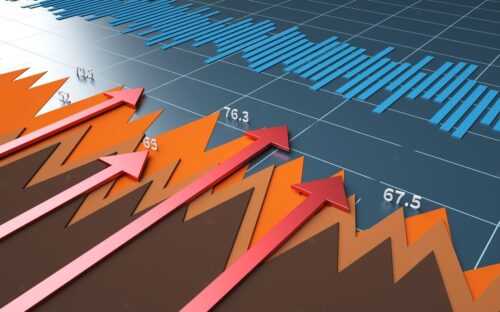
ETF trading is tougher because there is no visibility of the index.
We discuss some of these issues in detail below.
Calculating Indexes
Most ETFs are index-based products.
During normal market hours, the values of the underlying indexes are available in real time through various means.
However, in after hours sessions, they might not be easily accessible.
Institutional investors have proprietary systems to calculate these values automatically.
This puts them at an advantage.
Retail traders who don’t know which way the underlying index is moving may find it harder to deal in ETFs due to this reason.
Reduced Liquidity
Fewer traders and lesser volumes during after-hours make it harder to match buyers and sellers, thus lowering liquidity.
In fact, in some cases, transactions may simply not go through because there are no corresponding takers.
Increased Spreads
As explained above, it is harder to find market participants to trade post regular times.
This also means that there are higher costs for executing after-hours orders.
This expense is an additional burden on traders.
More Volatility
Since volume is lower; price discovery is harder.
Moreover, with higher bid-ask spreads, they might move in a much larger quantum in a very short time period.
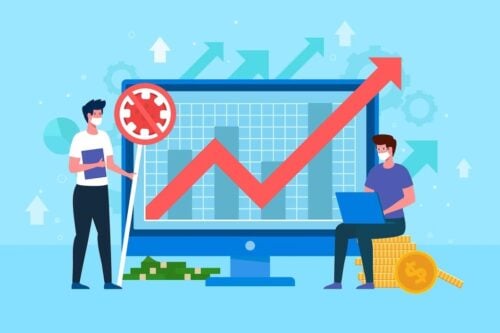
To add to this, ETFs can sell at a discount or premium to the net asset value of their underlying indexes.
All of this piles on to increase overall volatility in prices.
Uncertainty of Stock Prices
Since volumes are low, there is no guarantee that the price a trader is getting is the “right” one.
It could vary significantly from the value at which the share opens in the next trading session.
Difficult For Retail Investors
After-hours trading is largely an institutional investor game.
In fact, till about mid-1999, they were the only ones who used to do it.
These firms have large teams of analysts and financial experts who are better equipped to take calls on low-liquidity trades.
Small investors might find it hard to compete with them.
All Order Types Not Available
Not all order types are available for after-hours transactions.
Market orders don’t work because there is simply no exchange for placing them. Trades happen through ECNs which are not as efficient.
Only limit orders are allowed.
And to add to that, there is no possibility for trades to get carried over to the next day’s session.
If the transaction is not executed, it simply gets canceled.
During normal times, it is possible to place orders with different time limits.
For example, GTCs will remain in the system unless explicitly canceled.
Day, IOC, and FOK are other order types available during regular trading hours which don’t work in aftermarkets.
Fees on After-Market Transactions
A few brokerage firms might place additional charges on after-hours trading, especially for ETFs.
It puts investors at a loss, more so if they do such transactions regularly.
Limited Order Size
The largest request that can be placed in after-hours sessions is to either buy or sell 25,000 shares of any firm.
There are no such limits during normal trading hours. This may place larger investors at a disadvantage.
What Time of Day Is Best to Buy ETFs?
The optimum time to trade exchange-traded funds is when the stock market is about to close for the day.
Investors normally believe that both opening and closing trade sessions have the highest volumes.
Hence, spreads should be lowest at such times.
However, research has shown that the gap between bid and ask prices is highest in the morning session for ETFs.
In fact, it keeps going down throughout the day and is lowest near the end.
There is a potential saving of 0.01% of the stock price between transactions done at the close of the day rather than those in the opening hours.
Do I Get Taxed When I Sell ETF?
Yes, the sale of exchange-traded funds is taxable at a rate decided based on how long they were held (we discuss this in the next section).
Moreover, even if no sale happens, there might be situations where tax needs to be paid.
This occurs when the fund generates capital gains for any reason.
ETFs are mandated to pass them on to shareholders, who are, in turn, taxable for the money received.
Hence, an investor might end up paying taxes even without making any profit from selling their holdings.
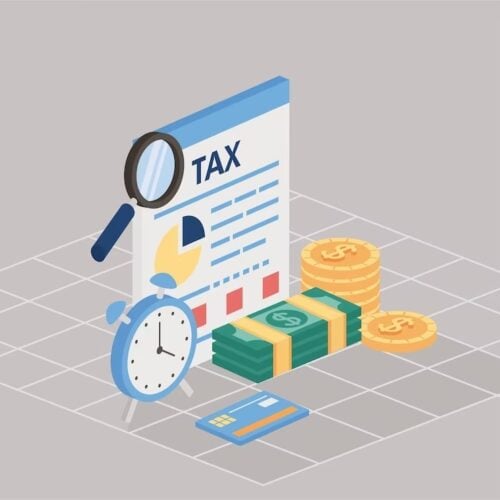
Thankfully, ETFs are very skilled at avoiding capital gains when compared with similar asset classes, such as mutual funds.
They follow a unique “in kind” creation and redemption process, which allows rebalancing portfolios without placing buy and sell orders.
Again, they don’t have to redeem investors since they are traded like securities on a stock exchange.
Hence fund managers need not sell the underlying assets to generate cash.
Lastly, most ETFs are passive and merely track certain indexes.
Therefore they do not need to make as many alterations to their holdings in any case.
How Long Should You Hold an ETF For?
There is no stipulated holding period for an ETF, but keeping it for more than a year will reduce the tax outgo.
Sales of funds held this long invite preferable long-term capital gains tax.
These can be a maximum of 20%, with an additional 3.8% based on your modified adjusted gross income.
On the other hand, proceeds from the sale of exchange-traded funds held for less than a year will incur short-term capital gains tax.
This can be as high as 40.8%.
Note that how long a fund is held is counted as the difference between your trade date (when it is bought) and order date (sale date).
The dates on which actual payments are sent or received are not used for this purpose.
Final Thoughts
ETFs trade just like stocks, and this equivalence carries to after-hours trading as well.
It can be beneficial to take correct positions when a major event that impacts your portfolio happens after regular trading hours.
However, this form of transacting is also fraught with several risks.
Lower volatility, poor liquidity, and huge fluctuations in price are common problems during extended trading hours.
On top of this, it may be hard to track the underlying index that the fund is tracking. Hence it is more difficult to make good calls for small investors.
This is the reason why much of the action in the after-market session is being done by institutional investors.
Such traders have better resources, scores of analysts, and financial experts to calculate the indexes and manage the risks.
Instead, it might be better for retail traders to carry out their transactions during normal trading hours.
As we explained, the best time for those who want to deal in ETFs is to place orders, preferably just before market closing when the bid-ask spreads are at their lowest.
All other things being equal, this could ensure optimum pricing and hence be better for profitable trades.

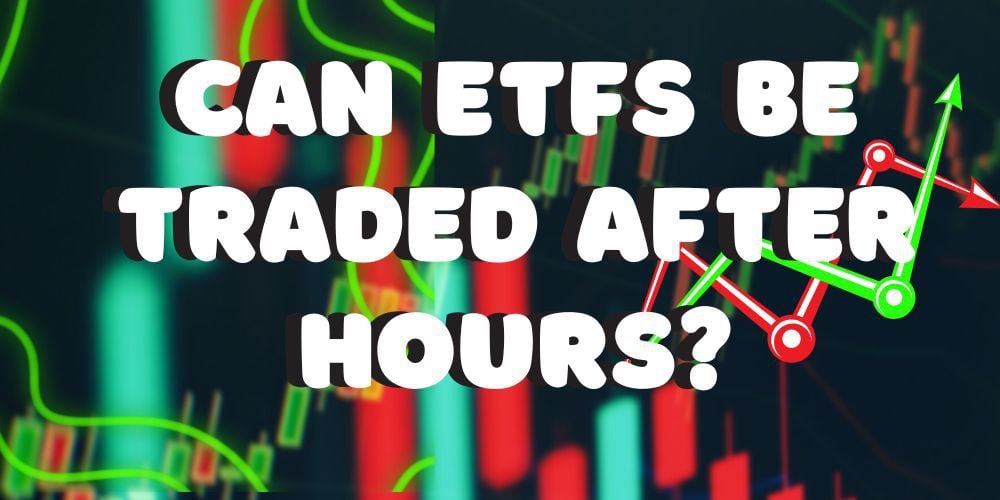
 Tags:
Tags:










